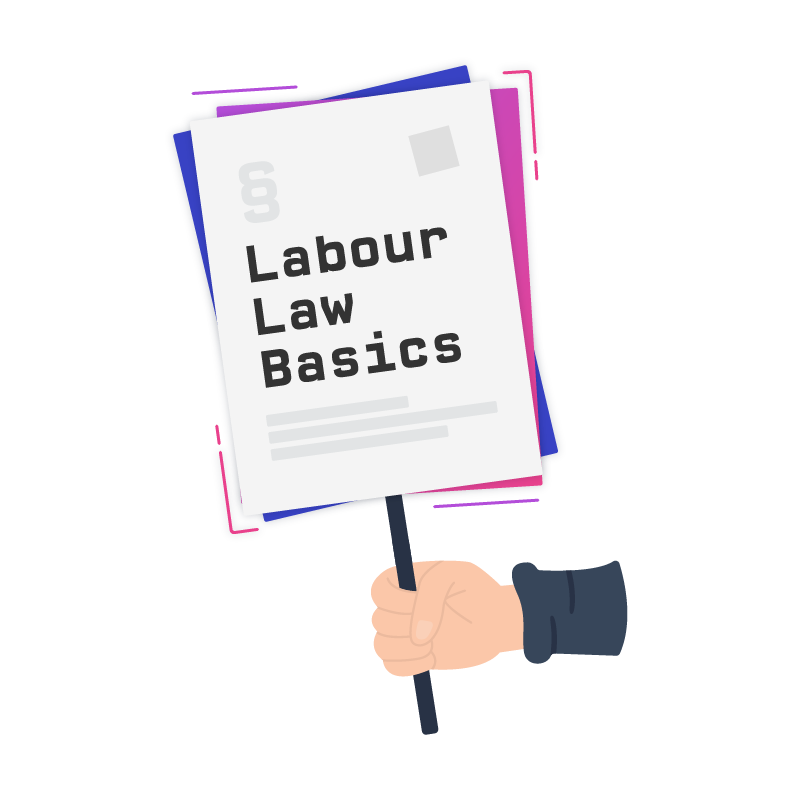Labour Law Basics

Stronger Together
Who Creates Collective Bargaining Agreements, and to Whom Do They Apply?
In Germany, unions and employers negotiate working conditions independently through collective bargaining, without the interference of the government or political parties. In the end, a collective bargaining agreement is signed. It is binding for employers and employees alike. Technically, only employees that are union members have a legal claim to whatever benefits and protections have been agreed upon. In most cases, however, employers grant them to all employees so union membership will not increase further.
What Do Collective Bargaining Agreements Regulate?
- salary levels
- bonuses and extra pay
- working hours and rest periods
- leave days and vacation
- employer contributions to employees’ savings schemes
- professional development opportunities
- overtime schemes
Collective bargaining agreements are usually much better than the statutory minimums.
Why Are Collective Bargaining Agreements Important?
There are countless advantages to collective bargaining agreements. One is that they reduce or even close pay gaps. The gender pay gap, for example, is significantly reduced in businesses bound by a collective agreement. Also, collective agreements usually include a 10% salary increase after the first year – no additional individual bargaining needed. Salaries then continue to grow through further successful collective bargaining rounds.
Collective bargaining agreements offer shorter working hours, more vacation time, appropriate bonuses, family-friendly working schemes, and professional training opportunities that further your career. In short, they improve working conditions reliably and long-term because they can’t just unilaterally change them. Collective bargaining empowers employees because they can participate in the decision-making, together with their colleagues.
Besides: Employees can always negotiate better deals beyond what their collective bargaining agreement already provides. Changes at the expense of employees are not permissible.
What Are The Advantages for Employers?
Collective Bargaining Agreements define benchmarks. Everyone gains clarity about what they can expect. Employers know what they have to pay their employees for their services. Responsibilities and salary schemes are transparent, timelines binding. That is advantageous for all parties involved. Fairness and transparency are the basis of harmonious cooperation.
What Types of Collective Bargaining Agreements Are There?
There are different kinds of collective bargaining agreements, some for entire industries and others for single companies. Some are declared generally binding, and all businesses of a specific sector follow them. Individual employment contracts can adopt some or all provisions of existing collective bargaining agreements. This practice is called individual contractual reference (einzelvertragliche Bezugnahme.)
There Is No Collective Bargaining Agreement?!
The company you work at does not have collective bargaining coverage? No worries, that can change if a large enough number of employees campaigns for it. As a rule of thumb, we can get going if at least 50% of employees are union members.
You are not sure whether you are entitled to a collective bargaining agreement? Get in touch, and we will find out together.

